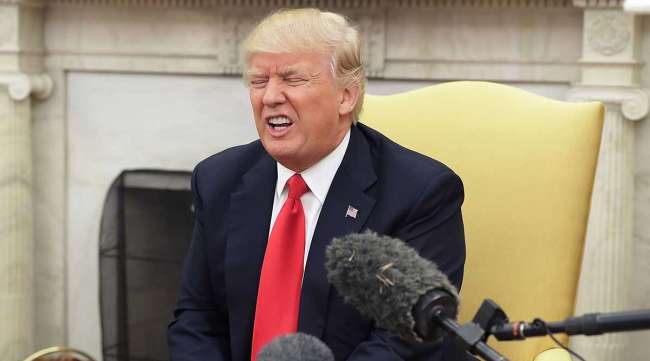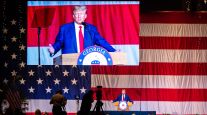Trump: US-China Trade Deal May Need ‘Different Structure’

President Donald Trump backed away from the trade deal his administration had just announced with China and said the United States may need to change the direction of talks to get a final agreement.
“Our Trade Deal with China is moving along nicely, but in the end we will probably have to use a different structure in that this will be too hard to get done and to verify results after completion,” Trump said on Twitter on May 23.
Treasury Secretary Steven Mnuchin said May 20 the administration agreed to put proposed tariffs on hold while it builds on a “framework” for negotiations with China on trade issues, after two days of high level negotiations in Washington. The nations didn’t provide details of the deal and put no dollar target for reducing the trade imbalance.
Trump showed waning enthusiasm for the deal May 22, saying he wasn’t pleased with the recent trade talks with China that were just getting started. The president is coming under fire from Republican and Democratic lawmakers for considering softer sanctions on ZTE Corp., which have crippled the Chinese telecommunications company.
RELATED: Trade gap narrows to $49 billion; drop of $8.8 billion biggest since 2009
Trump said he was doing Chinese President Xi Jinping a personal favor by ordering a review of a seven-year ban preventing U.S. suppliers from selling key components to ZTE because it violated sanctions law. Trump said May 22 the United States may instead require that ZTE appoint a new board of directors and pay “very large fine” of perhaps $1.3 billion.
Business Plan
Mnuchin earlier May 22 said that the United States didn’t mean to “put ZTE out of business” by penalizing the company over breaking the sanctions, while adding that any revised remedy will take into account “the very important national-security issues.”
U.S. Commerce Secretary Wilbur Ross plans to visit Beijing in early June to work out the details of a broad commitment from China to increase its purchases of American goods — particularly of energy and farming goods, his office said May 22. A scheduled Ross appearance early May 23 at a Heritage Foundation trade event in Washington was canceled, organizers said.
RELATED: Trump’s China tariffs risk costing US jobs, new study shows
Trump threatened tariffs on as much as $150 billion in Chinese imports after U.S. Trade Representative’s office earlier this year concluded that Beijing violates American intellectual-property rights. China vowed to retaliate in kind, sparking fear of a trade war.
The agreement at least delays a trade war, a prospect that has rattled financial markets for months. But many U.S. concerns about China’s economic practices remain unresolved: its acquisition of American technologies; the country’s plans to subsidize the growth of advanced domestic industries such as artificial intelligence and clean energy; and U.S. companies’ access to China’s markets.
With assistance from Jenny Leonard.




